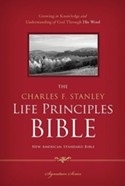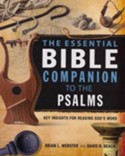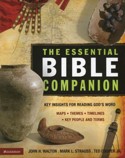I first memorized Psalm 1 in 6th grade. It's a powerful, well-known psalm. As was common practice at the time, I learned it in the King James Version. My memorization involved words such as "walketh not in the counsel of the ungodly," "standeth in the way of sinners," and "sitteth in the seat of the scornful."
I remember a fellow student asking why it was wrong to stand in the way of sinners. "Shouldn't we try to stand in their way and stop them?" she asked. Our teacher explained that it wasn't talking about standing in their way to prevent them from sinning, but standing with them in their sin.
Now, years later, the school I teach at (and my son attends) is focusing on Psalm 1 this month. We recite it daily in our assembly time. The biggest challenge to me is to say it in the ESV with everyone else. I keep wanting to revert to King James. Re-learning a scripture in a new translation is harder that initially memorizing it, because it's close, but there are different words here and there. The ESV has Psalm 1 talking about "scoffers," whereas King James says "scornful" and I slip up on that almost daily in our recitation! That's how deeply the original way I learned it is ingrained in me.
As we have said this passage, and as my first graders have worked on memorizing it, I have been convicted of something.
I am not actively walking in ungodly counsel, standing with sinners in their sin, nor sitting with scornful people. Yet, when I have a medical question, or am curious about something, I Google it. I don't know whose answers I'm reading. If the question is medical and it takes me to a doctor site, that might be okay, but often, there are multiple and contradictory medical opinions floating around out there. Where does faith fit into it? Am I seeking validation from a faceless, nameless world instead of praying about questions, or seeking godly counsel from people I actually trust? Many people online are the ungodly, sinners, and scornful mentioned in Psalm 1:1.
I recently did have something I wanted to check out and get info on, and it was all very contradictory, and opinion-based, and made me feel overwhelmed and even hopeless. That's not God's plan for any of us. He wants us to delight on His word and meditate on it day and night.
Through our memorization this month, God has shown me how I need to seek Him first, trusted advice second (godly counsel, actual doctors, people who really know the answers), and leave the rest.
I'll close with Psalm 1, KJV:
Blessed is the man that walketh not in the counsel of the ungodly, nor standeth in the way of sinners, nor sitteth in the seat of the scornful.
2 But his delight is in the law of the Lord; and in his law doth he meditate day and night.
3 And he shall be like a tree planted by the rivers of water, that bringeth forth his fruit in his season; his leaf also shall not wither; and whatsoever he doeth shall prosper.
4 The ungodly are not so: but are like the chaff which the wind driveth away.
5 Therefore the ungodly shall not stand in the judgment, nor sinners in the congregation of the righteous.
6 For the Lord knoweth the way of the righteous: but the way of the ungodly shall perish.


































































